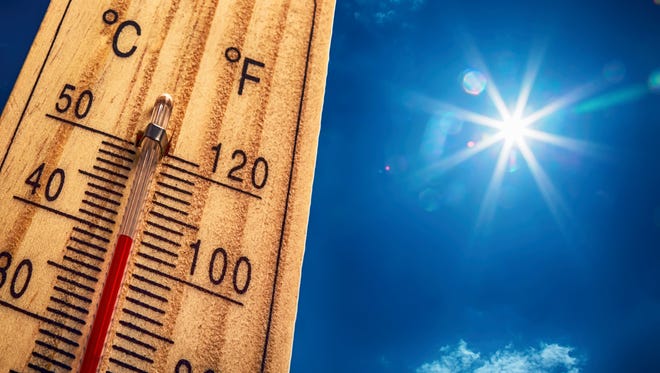The extreme heat that is punishing large swaths of the United States has disrupted businesses, caused electricity prices to spike, and endangered lives. It’s a stark reminder that our current energy system is unprepared for a hotter future.
Fortunately, rising temperatures have also prompted a surge of interest in technologies and products that could make our homes more comfortable and efficient. Now is our moment to supercharge this revolution in resiliency.
Perhaps it’s fitting that a heat wave that spiked around Independence Day is driving American homeowners to free themselves from reliance on the grid by taking greater control of their energy use. In Texas alone, customer demand for more efficient and electric HVAC systems has increased 41% since the onset of the June heat wave, based on data collected from home improvement contractors active in the state.
The reason is clear. As millions of Americans celebrated the July 4, the Earth hit the highest average temperature on record — only to see that record broken two days later. Since then, Phoenix, Arizona has experienced a record streak of days above 110 degrees, while an unrelenting heat wave continues to swelter Texas and push the power grid to its limits.
Across the south, 300,000 customers lost power as temperatures and high humidity levels caused heat indices to exceed 125 degrees last month. For some residents in Mississippi, the outages lasted longer than the blackouts after Hurricane Katrina.
This is our new normal. In 2021, a one-in-1,000-year heat wave gripped an area stretching from the Pacific Northwest to Southern California. And in 2022, a one-in-10,000-year heat wave strained power systems from Chicago to Texas.
Cooler regions won’t be spared either. Between Dec. 21 and Dec. 26, 2022, a massive winter storm knocked out power for more than 1.5 million Americans from New York to the Carolinas.
When power grids fail for days at a time, people are left in the dark and without heat or air conditioning when they need it most. While harmful to all, power failures can be fatal to those dependent on medical equipment or perishable prescription drugs.
Short of an outage, extreme weather events are uncomfortable and cause household energy bills to soar. More broadly, in any given year the U.S. loses an average of $100 billion due to heat-induced declines in labor productivity.
The good news is we don’t have to make sacrifices to live more sustainably and make our homes more resilient. Installing rooftop solar panels paired with battery storage can provide peace of mind by keeping the lights on, the AC running, and the refrigerator working in the face of widespread power outages. Simply put, you’ll have electricity while your grid-dependent neighbors may not.
The Solar Energy Industries Association and research firm Wood Mackenzie forecast residential solar installations will rise by a record 6.4 gigawatts this year alone, which is equivalent to more than 750,000 homes.
As the cost of energy storage drops — lithium-ion battery costs have already fallen 97% over the past three decades — alongside the increased availability of financing options, a growing number of homeowners are pairing those solar panels with battery storage units. By 2027, around 30% of all new residential solar installations will include battery storage, up from less than 10% in 2022. These sun-charged batteries have a key role to play in protecting stressed power gridsfrom outages.
Similarly, investments in insulation, energy efficient windows, upgraded roofing and programmable thermostats can help homeowners save on summer energy bills while reducing strain on the electricity system. Households can also swap out older heating and air conditioning systems for more efficient HVAC systems and electric heat pumps before their current equipment breaks, so families don’t have to sweat through an emergency replacement. Similar investments can be made in hot water heaters.
The Inflation Reduction Act provides incentives designed to bring the cost of these systems down, putting them in reach for more Americans than ever. Ensuring new rebate programs are truly accessible to consumers and not bogged down with burdensome paperwork will give us an unparalleled opportunity to protect our families and communities from the next crisis.
With smart policies and planning, homeowners can free themselves from crippling power outages and high energy bills — not only to make it through this early summer heat wavebut for years to come.
Julia Pyper is the Vice President of Public Affairs for GoodLeap, a finance technology company that provides financing options for sustainable home upgrades. She is also a non-resident senior fellow at the Atlantic Council’s Global Energy Center.
Read the full article here









